См., например, F. Ponchaud, “Social Change in the Vortex of Revolution”, in K. Jackson (ed.), Cambodia 1975—1978: Rendezvous with Death (Princeton, 1989), pp. 170 ff.
Bizot, The Gate, p. 110.
B. Kiernan, “Enver Pasha and Pol Pot: A Comparison between the Armenian and Cambodian Genocides”, in Proceedings of the International Conference on the “Problems of Genocide” (Cambridge, Mass., 1997), pp. 56—7.
P. Short, Pol Pot: The History of a Nightmare (London, 2004), p. 337.
J.-L. Margolin, “Cambodia. The Country of Disconcerting Crimes”, in S. Courtois et al., The Black Book of Communism: Crimes, Terror, Repression (Cambridge, Mass., 1999), p. 626.
Разные мнения на этот счет см. в К. Jackson, “Introduction”, in Jackson (ed.), Cambodia pp. 9, 11; M. Vickery, “Democratic Kampuchea: Themes and Variations”, in D. Chandler and B. Kiernan (eds.), Revolution and Its Aftermath in Kampuchea: Eight Essays (New Haven, 1983), p. 131.
Цит. по В. Kiernan, The Pol Pot Regime: Race, Power and Genocide in Cambodia under the Khmer Rouge, 1975—79 (New Haven, 1996), p. 62.
См. Short, Pol Pot, p. 287.
A. Hinton, “Why Did You Kill? The Cambodian Genocide and the Dark Side of Face and Honor”, The Journal of Asian Studies 57 (1998), p. 110.
Chandler et al., Pol Pot Plans the Future, p. 158.
S. Heder, Kampuchean Occupation and Resistance (Bangkok, 1980), p. 6.
Цит. по Chandler, Brother Number One, p. 115.
D. Pran, Children of Cambodia’s Killing Fields. Memoirs of Survivors (New Haven, 1997), p. 131.
Margolin, “Cambodia”, p. 626.
Chandler et al., Pol Pot Plans the Future, p. 183.
О других, более высоких цифрах см. М. Sliwinsky, Le Genocide Khmer Rouge: Une analyse demographique (Paris, 1995) О количестве погибших см. Margolin, “Cambodia”, pp. 588—91.
Hinton, “Why Did You Kill?”, pp. 113,118.
A. Hyman, Afghanistan under Soviet Domination, 1964—9 1 (London, 1992), pp. 92—8.
Об отношении СССР см., Н. Bradsher, Afghan Communism and Soviet Intervention (Oxford, 2000), ch. 3; Westad, Global Cold War, pp. 299—326.
Silvio Pons, “Meetings between the Italian Communist Party and the Communist Party of the Soviet Union, Moscow and Rome 1978—80”, Cold War History, 3 (2002), pp. 157—66.
The Economist, 20 декабря 1978 r.
D. Remnick, Lenin’s Tomb, The Last Days of the Soviet Empire (London, 1994), p. 156.
Цит. по: М. Leffer, For the Soul of All Mankind, The United States, the Soviet Union and the Cold War (New York, 2007), p. 385.
Там же, с. 394.
D. Reynolds, Summits. Six Meetings That Shaped the Twentieth Century (London, 2007), p. 360.
M. Gorbachev, Memoirs (London, 1997), p. 489.
Liu Binyan, People or Monsters? And Other Stories and Reportage from China after Mao, ed. P. Link (Bloomington, 1983), pp. 11—68.
R. Baum, Burying Mao: Chinese Politics in the Age of Deng Xiaoping (Princeton, 1994), p. 8.
S. Shirk, The Political Logic of Economic Reform in China (Berkeley, 1993), ch. 10.
W. Jenner and D. Davin (eds.), Chinese Lives (London, 1986), pp. 8—9,13.
L. Zhang and С Macleod (eds.), China Remembers (Oxford, 1999), p. 5.
People’s Daily, 3 августа 2006 r.
A. Yurchak, Everything was Forever, until It was No More. The Last Soviet Generation (Princeton, 2006), p. 113.
Там же, сс. 96—97.
Там же.
R. Tokes, Murmur and Whispers: Public Opinion and Legitimacy Crisis in Hungary, 1972—1989 (Pittsburgh, 1997), pp. 37—9.
Там же, с. 56.
D. Bahry, “ Society Transformed? Rethinking the Social Roots of Perestroika”, Slavic Review, 52 (1993), pp. 516—17.
D. Mason, Public Opinion and Political Change in Poland (Cambridge, 1985), pp. 63—4.
H. Merskey and B. Shafran, « Political Hazards in the Diagnosis of “Sluggish Schizophrenia”», British Journal of Psychiatry, 148 (1986), p. 253.
М. Fulbrook, The People’s State: East German Society from Hitler to Honecker (New Haven, 2005), pp. 241—2.
См. интервью в В. Miller, Narratives of Guilt and Compliance in Unifed Germany: Stasi Informers and Their Impact on Society (London, 1999), pp. 67—8.
Цит. по: Miller, Narratives of Guilt, p. 43—4.
Цит. там же, с. ioi.
См. Yurchak, Everything was Forever, pp. 107—8.
Bahry, « Society Transformed?», p. 539.
Tokes, Murmur and Whispers, p. 56.
См., например J. Kopstein, The Politics of Economic Decline in East Germany, 1945—1989 (Chapel Hill, 1997), pp. 122—9.
А. Ципкоцит. по: М. Ouimet, The Rise and Fall of the Brezhnev Doctrine in Soviet Foreign Policy (Chapel Hill, 2003), pp. 252—3.
M. Ellman and V. Kontorovich (eds.), “ The Destruction of the Soviet Economic System: an Insiders” History (Armonk, NY, 1998), p. 173.
О разочаровании этой группы см. О. Westad, “ How the Cold War Crumbled”, in S. Pons and F. Romero (eds.), Reinterpreting the End of the Cold War. Issues, Interpretations, Periodizations (London, 2005), p. 76. См. также A. Brown, Seven Years That Changed the World: Perestroika in Perspective (Oxford, 2007), pp. 172—3.
А. Яковлев. Сумерки. М., 2003. С. 354.
Mason, Public Opinion, p. 45.
Там же, с. 82.
Этот аргумент, подчеркивающий определяющую роль церкви, а не рабочего класса, приведен М. Osa, Solidarity and Contention: Networks of Polish Opposition (Minneapolis, 2003).
Читать дальше
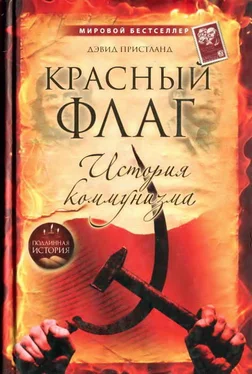
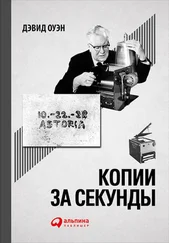
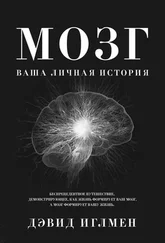

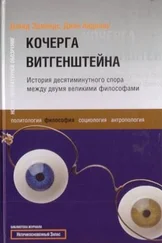

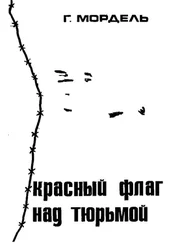
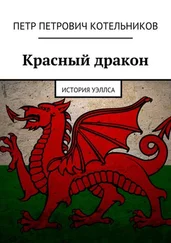
![Рауф Габидулин - История коммунизма в России [litres]](/books/431152/rauf-gabidulin-istoriya-kommunizma-v-rossii-litres-thumb.webp)

